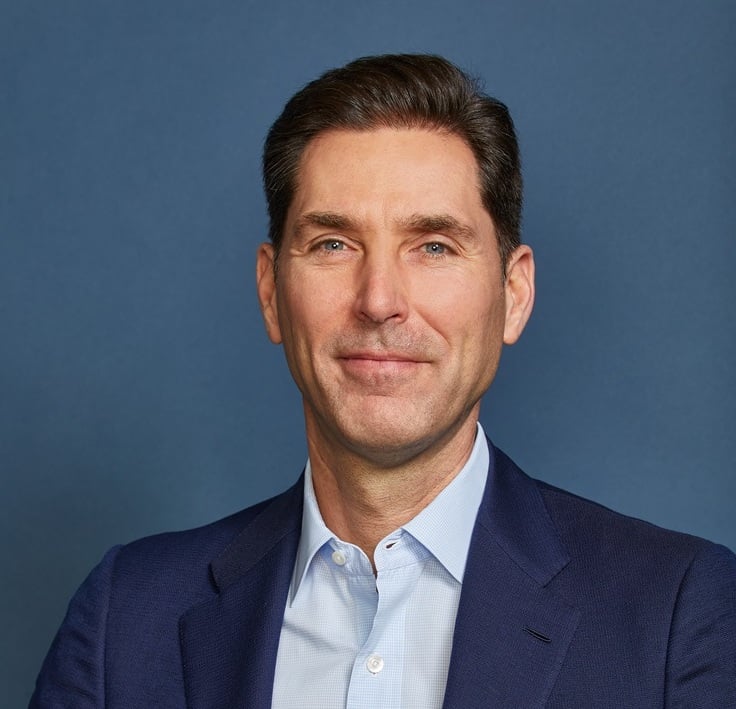The COVID-19 pandemic exposed and often exacerbated the significant systemic health inequities that underserved communities have faced for many years. Black Americans have been particularly affected by these inequalities. These inequities and resulting disparities foster mistrust and contribute to vaccine hesitancy.
Systemic racism is as real as any disease and we must continue to aggressively address underlying biases, correct historic wrongs, and strive for better patient experiences with institutions of power to build trust and improve patient outcomes for underserved communities. There’s not a silver bullet, but there are concrete steps our industry is taking – like PhRMA’s first-ever, industry-wide principles on clinical trial diversity – to address these issues and related barriers to care.
I recently had the opportunity to connect with Ron Busby, Sr., President and CEO of the U.S. Black Chambers, Inc. (USBC), which represents 310,000 Black-owned businesses nationwide, about how to improve vaccine confidence in communities of color. We spoke at a joint event our two organizations hosted that included leading scientific and medical experts.
Stephen Ubl (SU): The pandemic has hit the Black community in two big ways, through health consequences and high rates of unemployment resulting from the pandemic. What are you hearing from your fellow business leaders on the challenges of operating in this environment and trying to reopen while balancing the need to keep public health front and center?
Ron Busby, Sr. (RB): We have lost over 70,000 African Americans to the virus, but we also lost nearly 450,000 Black-owned businesses to the virus. Essential workers, which were many of the Black and Brown employees across the country, were forced to go into work with very little information and little protection. This combined with the often subpar conditions of our health care systems in many Black and Brown communities led to a great deal of unrest.
True transparency, as it relates to information on the vaccines, is critical to businesses opening back up. For us, transparent conversations like this will disseminate good information and help inform how we safely open back up.
SU: There are lots of factors and barriers that stand in the way of communities of color getting access to equitable health care, including COVID-19 vaccines. What do you see as the greatest barriers to vaccine uptake and adherence?
RB: It’s a combination of things. Many African Americans have heard about what happened in Tuskegee and have never forgotten the study. But also, we face implicit biases on a daily basis. There are racial disparities in health care, and we often face misinformation and a lack of transparency. We want to work together to make sure that people know the facts about our health care challenges, and mitigate the conversations across Black communities that may be spreading misinformation.
SU: How do we work together to earn back that trust and help ensure all Americans, including the Black community, are protected against COVID-19 and other deadly diseases?
RB: To start, we need to enhance transparency and education by speaking directly to the Black community about the issues. We need to create the opportunity for people to ask questions and hear from leaders in the community. Also, diversity in clinical trials and tests are critical. It allows us to be included on the front end of the development opposed to just the implementation. I think that rebuilds those trust factors.
SU: As you know, PhRMA has instituted the first ever industry-wide principles on clinical trial diversity. These voluntary principles are meant to help us to enhance diversity in clinical trials, to enhance our recruitment and retention and to ensure that these trial populations better reflect the disease population of those individuals who are impacted by disease. Any other thoughts you have on the importance of diversity in clinical trials?
RB: Including a diverse group in clinical trials is extremely important…From a systemic perspective, when you see people that look like you are included in the process, it gives the perspective that yes, our issues are being addressed on the front end versus the back end.
SU: As a business and community leader, I'm interested in the conversations that you're having with your peers, with your own employees about the importance of getting vaccinated. How should leaders talk to their employees about the importance of getting vaccinated so that our economy and jobs can come back?
RB: It's not just about talking, it's about actually leading. And the best way you can lead is by example. When you're talking to your staff or talking to your customers, employees, as well as your vendors, it's great to first have a knowledge of the vaccine itself so that you can talk from a place of understanding. Second, don't underestimate your influence. In many Black communities, it's those business leaders, those business owners that have gained the trust of those communities. For our leaders, you can start by going to https://usblackchambers.org/vaccine/ for more information.
To watch the full event, click here.



